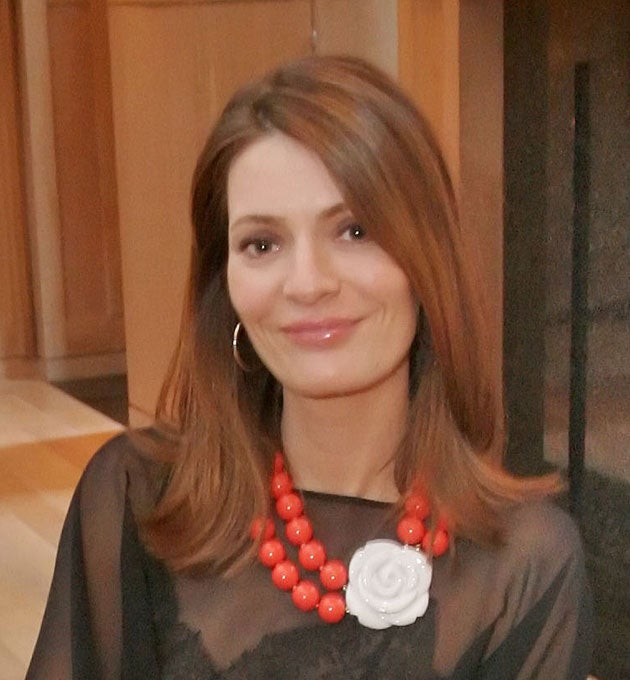End of a chapter: chick lit takes on the credit crunch
In hard times, sex-and-shopping sagas are being reinvented. Welcome to the world of recessionista lit

Your support helps us to tell the story
From reproductive rights to climate change to Big Tech, The Independent is on the ground when the story is developing. Whether it's investigating the financials of Elon Musk's pro-Trump PAC or producing our latest documentary, 'The A Word', which shines a light on the American women fighting for reproductive rights, we know how important it is to parse out the facts from the messaging.
At such a critical moment in US history, we need reporters on the ground. Your donation allows us to keep sending journalists to speak to both sides of the story.
The Independent is trusted by Americans across the entire political spectrum. And unlike many other quality news outlets, we choose not to lock Americans out of our reporting and analysis with paywalls. We believe quality journalism should be available to everyone, paid for by those who can afford it.
Your support makes all the difference.She's had to cut up her credit cards, take her kids out of private school, and, gasp, even think about finding a job to try to plug the gaping hole in the family finances. Meet the heroine of a new crop of novels that are tackling the fallout from a recession that has turned Mr Right into Mr Wrong and forced a generation of chick lit protagonists to grow up fast.
As the economy falters and their gilded lifestyles start to rust, these fictional heroines – who once lived for nothing but shopping and playing the perfect housewife – have found themselves confronting a harsh new reality in which making ends meet plays a bigger part than the latest secret sample sales.
Publishers and novelists believe what has been dubbed "recessionista fiction" will strike a chord with readers who have run out of sympathy with the shopaholics of previous best-sellers, and could signal the end of the genre that has dominated bookshop shelves for so long.
In books such as The Summer Kitchen, by Karen Weinreb, which was published last month, or Wendy Walker's Social Lives, which comes out in September, women are left struggling to save their families from financial collapse after their husbands engage, Bernie Madoff-style, in a spot of white-collar crime.
Even the heroine of Tatiana Boncompagni's Hedge Fund Wives finds herself having to cope with the fallout from her divorce and dwindling bank balance.
Keshini Naidoo, commissioning editor at Avon, which published Hedge Fund Wives, said the new take on chick lit "perfectly fits the mood of the times". She added: "After the downturn in the economic climate, blockbusters that glorified excessive, conspicuous consumption threatened to look both in poor taste and deeply out of touch with what readers are experiencing."
Authors such as Ms Walker say there is an added feminist dimension to this latest crop of books. "We're hearing a lot about the wives of men like Bernie Madoff. Should they be punished for riding the gravy train of embezzlement? I wanted to look at what happens when someone has taken equity out of the house from a woman's perspective. You get a division of labour when a husband is banking so much money on Wall Street: wives give up their jobs and become professional homemakers and mothers, but these skills have no market value unless they're attached to a man."
Ultimately, these women are forced to take stock of their lives and salvage something from the financial wreckage. Hence the likes of Holly Talbott, the star of Jill Kargman's The Ex-Mrs Hedgefund, has to realign her priorities and revert to her early career in rock 'n' roll, while Ms Weinreb's Nora Banks opens a soup kitchen. Even shopaholics get their comeuppance, as Amy Silver's Confessions of a Reluctant Recessionista makes clear.
Ms Naidoo thinks readers are enjoying a break from novels where characters just lived to shop. "While there is a still a thirst for glamorous fiction that details an aspirational lifestyle, this year has seen many novels that show the tarnish behind these gilded lifestyles. And it may be cynical, but their success could perhaps also be put down to a sense of schadenfreude on the part of readers."
Not all novelists are happy to embrace recession-lit, however. Plum Sykes, author of Bergdorf Blondes and The Debutante Divorcee, said a credit-crunch backdrop "just doesn't work" for her social comedies, adding: "I will not set another book in modern-day America because of the credit crunch."
She was sceptical that a new genre of chick lit could emerge from the recession, partly because she believes we've already seen the last of the "sex and shopping book as a publishing phenomenon". She added: "Chick lit seems so out of date now. Not only because of the economic reality but because it's been done to death."
Join our commenting forum
Join thought-provoking conversations, follow other Independent readers and see their replies
Comments